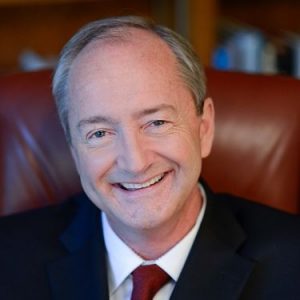Vanessa Auld, PhD
Professor
Cell biology, genetics, model systems, development of the nervous system, glia, barriers in the body
Carl Laird Birmingham, MD
Professor
eating disorders, anorexia nervosa, bulimia nervosa, binge eating disorder, ARFID, phobia, emetophobia, obesity, neurofeedback, LORETA neurofeedback, concussion treatment
Raymond Lam, MD, FRCPC
Professor
BC Leadership Chair in Depression Research
Seasonal affective disorder, winter depression, antidepressants, light therapy, depression, clinical guidelines, circadian rhythms, melatonin, serotonin, dopamine, noradrenaline, tryptophan, cognition, technology, eHealth, mHealth, guidelines, biomarkers, diagnosis, internet, mental illness
David Li, MD, FRCPC
Professor Emeritus of Radiology
Emeritus Director UBC MS/MRI Research Group
Multiple sclerosis (MS), Magnetic Resonance Imaging (MRI)
Tania Lam, PhD
Associate Professor
Walking, spinal cord injury, physical therapy, rehabilitation, movement, neuroscience
Dr. Elizabeth M. Simpson, BSc, MSc, PhD
Professor
Genetics, genomics, mouse modeling, CRISPR, aniridia, blindness,
Prof. Helen Tremlett, PhD
Professor & Canada Research Chair in Neuroepidemiology and Multiple Sclerosis
multiple sclerosis, epidemiology, pharmacoepidemiology, health administrative data, drug safety and effectiveness, disease-modifying drugs for multiple sclerosis, gut microbiome, pediatric-onset MS, observational studies, real-world data, post-marketing research,
Paul Pavlidis, PhD
Professor
Bioinformatics, genomics, gene networks, systems biology, computational biology, human genome, gene mutation
Prof. Edward Taylor, PhD, RCSW, ACSW
Associate Dean
Assessment, diagnoses, and treatment of moderate to severe mental disorders in youth and young adults, School Violence, Terrorism and the many pathways to becoming a terrorist, Understanding violence and mental disorders, Neuro-social development of social intelligence and social problem-solving,
Catharine Winstanley, PhD
Associate Professor
Impulsivity, gambling, behavioural neuroscience, frontal cortex, dopamine, serotonin, addiction
Tiffany Townsend, MD
Clinical Assistant Professor
Neurology, epilepsy, epilepsy surgery, seizures, psychiatry and epilepsy
Dr. Judy Illes, CM, PhD
Professor
Distinguished University Scholar
UBC Distinguished Scholar in Neuroethics
Ethics, brain, biomedicine, bioethics, neuroscience,
Dr. Illes is a world-reknowned pioneer of the field of neuroethics that was formally established in early 2000 to directly align biomedical ethics with neuroscience in research, clinical practice, and the commercialization of brain health. She received her PhD from Stanford University, and holds faculty appointments at UBC, the University of Washington in Seattle, and Clare Hall at Cambridge University in England. She is co-lead of the Canadian Brain Research Strategy of the International Brain Initiative, and sits on numerous advisory boards, including the Standing Committee on Ethics and the Institute for Neuroscience Mental Health and Addiction of the Canadian Institutes of Health Research. She also is a newly appointed Director-at-Large of the Canadian Academy of Health Sciences. Dr. Illes is often asked to provide expert consultation and testimony on ethics matters involving conflict of interest, neuroprivacy, and ownership of research data, governance, and regulation. She received the Order of Canada, the country’s highest citizen award, in 2017.
Roger Wong, CM, BMSc, MD, FRCPC, FACP, FCAHS
Clinical Professor, Division of Geriatric Medicine
Vice Dean, Education
Geriatrics, geriatric medicine, acute care for older people, hospital medicine, frailty, dementia, Alzheimer’s disease, quality improvement in medicine, medical education,
Jean-Sébastien Blouin
Professor
Sensorimotor physiology, vestibular, standing balance, perception, whiplash, neck, robotics
Dr. Lawrence Ward, AB, PhD
Professor
Cognitive/perceptual psychology, psychophysics, cognitive neuroscience, computational neuroscience, stochastic resonance,
Prof. Paul van Donkelaar, PhD
Professor
Traumatic brain injury; intimate partner violence; sports-related concussion; sensorimotor control; neurocognitive function; cerebrovascular physiology,
Timothy Inglis, PhD
Professor
Movement, control, balance, equilibrium, spinal cord, vestibular, neuroscience, physical therapy
Dr. Catriona Hippman, PhD, CGC
Postdoctoral Fellow
Genetic counselling, genetic counseling, psychiatry, mental illness, postpartum depression, reproductive mental health, perinatal mental health, prenatal genetic screening, Down syndrome, disability, pharmacogenetics, pharmacogenomics, personalized medicine, antidepressants, antidepressant use in pregnancy, decision making in pregnancy,
Tony Traboulsee, MD
Professor
Multiple sclerosis, neuromyelitis optica (NMO)
Dr. Stan Floresco, PhD
Professor
Dopamine, reward, decision making, cognitive flexibility, frontal lobes, addiction,












